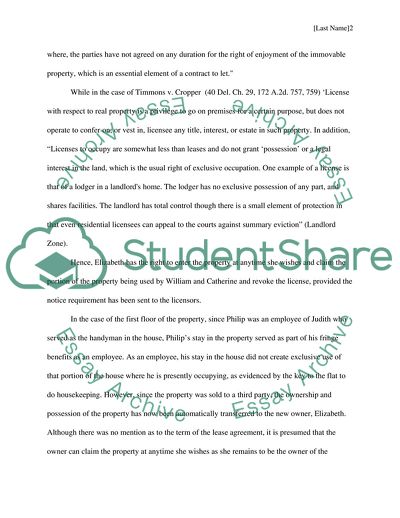Cite this document
(Analysis of Land Law Cases Assignment Example | Topics and Well Written Essays - 1500 words - 2, n.d.)
Analysis of Land Law Cases Assignment Example | Topics and Well Written Essays - 1500 words - 2. https://studentshare.org/law/1752923-land-law
Analysis of Land Law Cases Assignment Example | Topics and Well Written Essays - 1500 words - 2. https://studentshare.org/law/1752923-land-law
(Analysis of Land Law Cases Assignment Example | Topics and Well Written Essays - 1500 Words - 2)
Analysis of Land Law Cases Assignment Example | Topics and Well Written Essays - 1500 Words - 2. https://studentshare.org/law/1752923-land-law.
Analysis of Land Law Cases Assignment Example | Topics and Well Written Essays - 1500 Words - 2. https://studentshare.org/law/1752923-land-law.
“Analysis of Land Law Cases Assignment Example | Topics and Well Written Essays - 1500 Words - 2”. https://studentshare.org/law/1752923-land-law.


